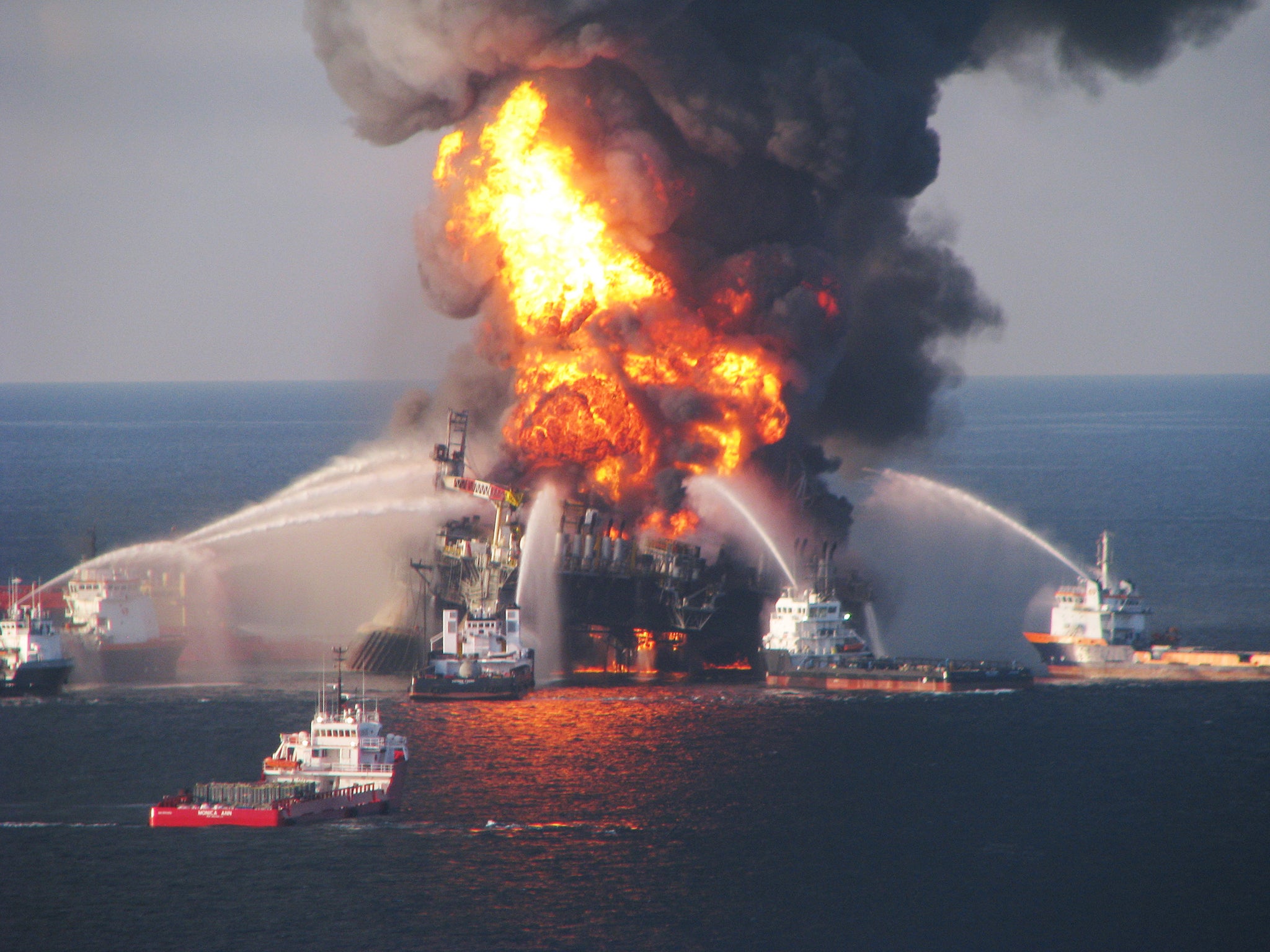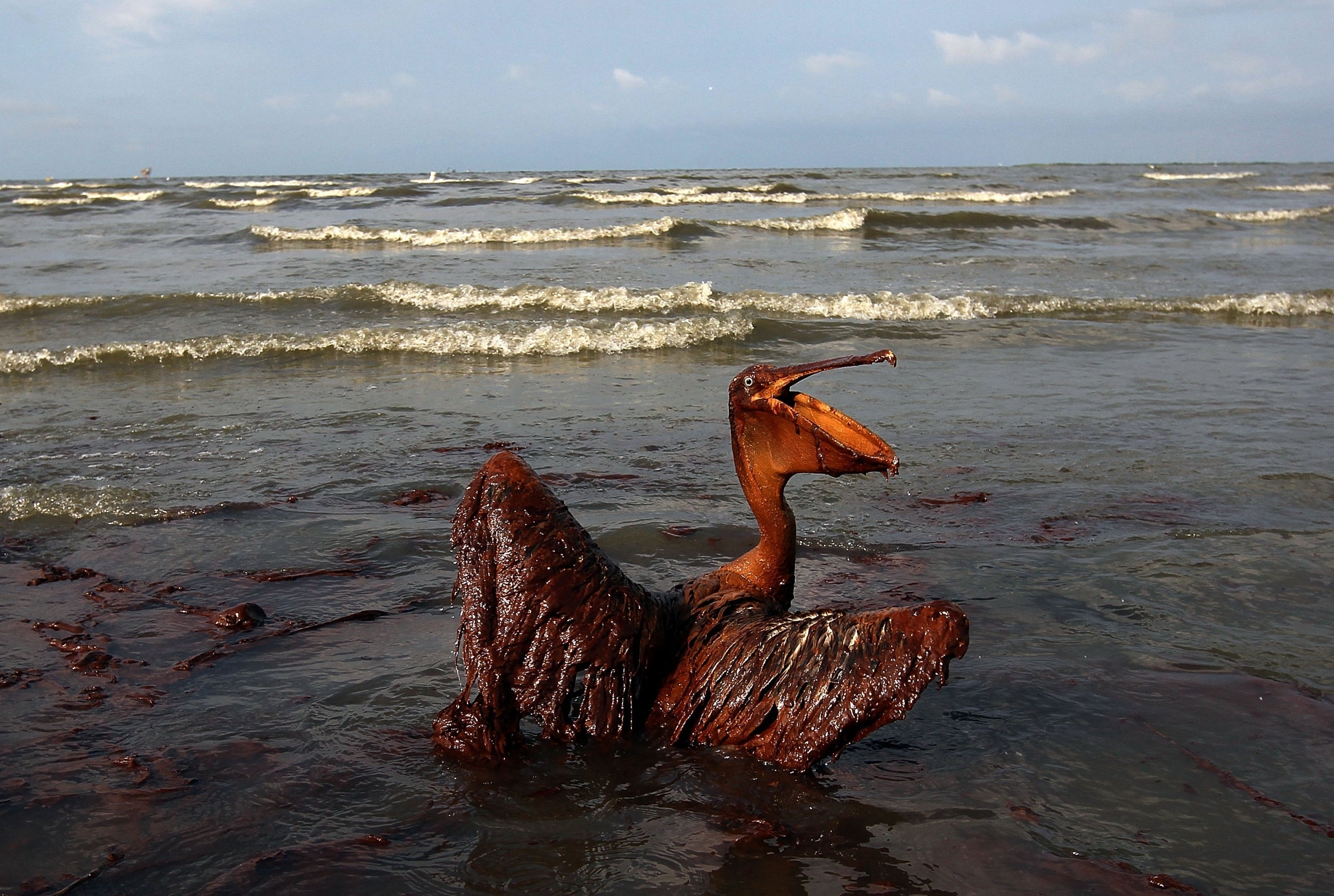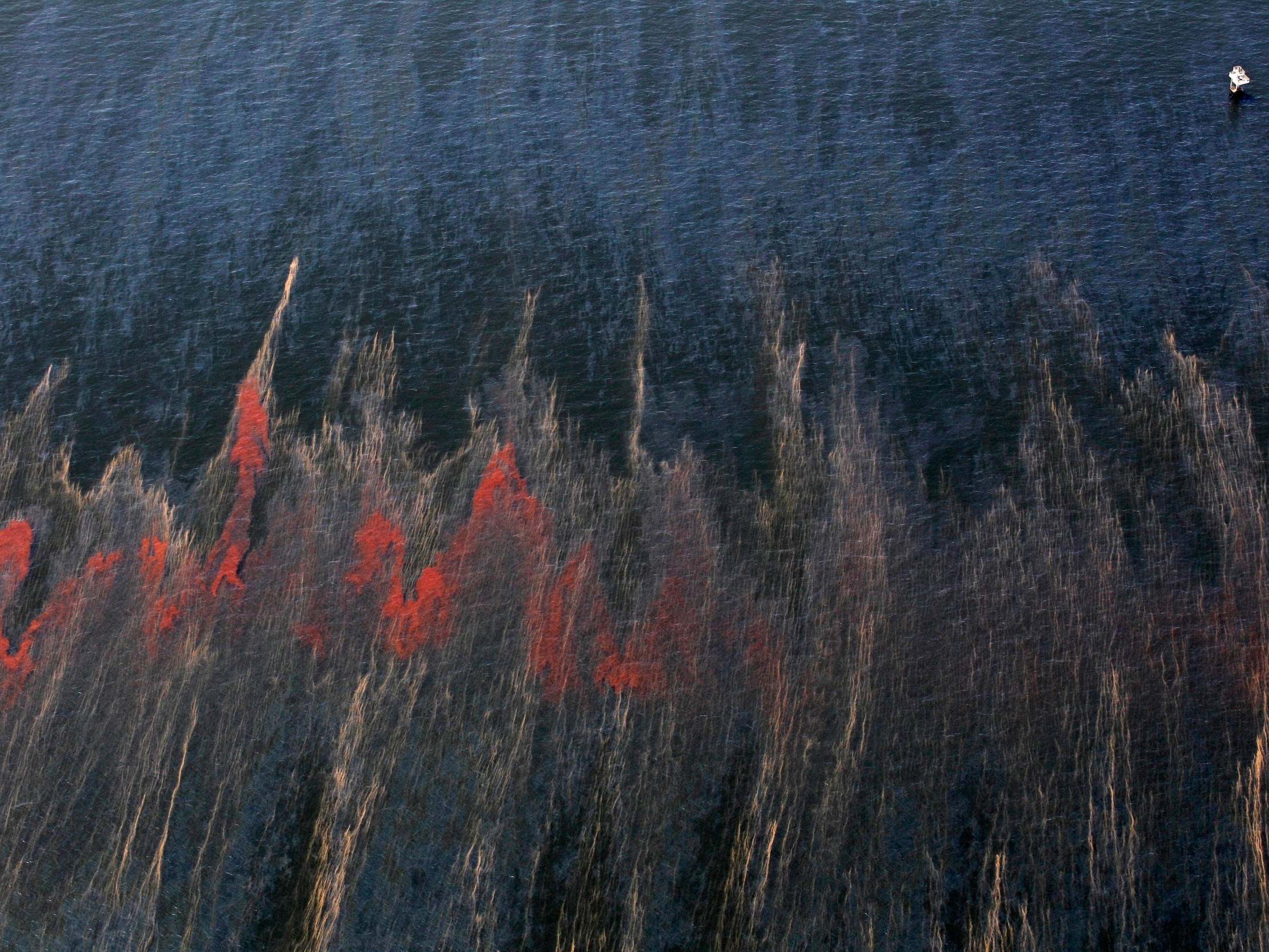The Trump administration has taken steps to unwind the safeguards put in place by former President Barack Obama following the Deepwater Horizon oil spill a decade ago.
On April 20, 2010, off the Louisiana coast, high-pressure methane gas rose to the Deepwater Horizon drilling rig above and exploded into a fireball that could be seen from 40 miles away.
The disaster left 11 workers presumed dead, their bodies never found despite a three-day search by the coastguard. Another 17 of the 126 crew onboard were injured.
The fire was inextinguishable and, two days later, the rig sank. The ultra-deepwater well at the BP’s Macondo Prospect, where Deepwater Horizon had been drilling, spewed an estimated 134 million gallons of oil into the Gulf of Mexico before it was capped.
Following the disaster, the Obama administration introduced the Well Control Rule in 2016, measures that included backup mechanisms on blowout preventers, safety equipment tests, and independent inspectors to oversee the industry.
Since President Donald Trump entered the White House, his administration has introduced a host of fossil-fuel friendly policies. The number of safety inspection visits by the US Bureau of Safety and Environmental Enforcement, established after the 2010 spill, went down by more than 20% over the past six years in the Gulf, according to a review by the Associated Press.
All seven members of the bipartisan commission set up in the aftermath of the disaster and to stop another like it happening told The New York Times that many of their recommendations were not taken seriously and the risk of another spill is possible.

In March, the EPA announced that it would relax the enforcement of environmental protection laws during the coronavirus pandemic.
Last week, the Natural Resources Defense Council sued the EPA asking a court to force the agency to respond to their proposal of an emergency rule that would require industry groups who use the relaxed standards to submit written notice to the EPA.
The lawsuit alleges that the EPA’s decision creates a serious risk that companies will stop necessary monitoring and reporting on pollution that’s required under law, Grist reported.
Diane Hoskins, campaign director of Oceana, authored a recent report on the disaster and came to the conclusion that no lessons had been learned.
She told The Independent: “Today, off-shore drilling remains dirty and dangerous and the industry’s record is unacceptable.

“Instead of learning from this disaster, President Trump is proposing to radically expand offshore drilling while dismantling some of the few protections put in place as a result of the catastrophe.
“The key lesson was that the industry cannot be trusted to self police.
“In response to the disaster, the Obama administration enacted safeguards. Last year, President Trump drastically gutted them, rolling back the frequency and duration of testing for blowout preventers, the device that failed on Deepwater Horizon. There has also been a weakening of onshore monitoring requirements and reducing government oversight to evaluate industry safety.
“The ramifications of offshore drilling are horrific and catastrophic when things go wrong. These [safeguards] should be the minimal standard of doing business.”
Deepwater drilling plays a major role in US oil production and companies are going to even greater depths.

Professor Tracey Sutton researches the ecology of the Gulf at Nova Southeastern University in Fort Lauderdale, Florida. His research assessing damage to species in the deepwater column of the ocean began in the months after the Deepwater Horizon disaster.
He told The Independent: “The majority of US oil comes from ultra-deep wells in the Gulf of Mexico. There are leases all the way down to 3,000 metres. Deepwater Horizon was half that.
“This is not a problem that’s going to go away. Another deepwater spill is still very much a real possibility.”
As oil companies drill deeper, the risks increase due to ultra-high pressures and oil temperatures that can top 350F.
There has been no large spill like that from Deepwater Horizon in the past decade, but incidents continue.
According to the Department of Transportation, an estimated 29m gallons of petroleum enters US waters each year from natural seeps, extraction, transportation and consumption.
In case of another major spill, some of the equipment that was created at the time of Deepwater Horizon is kept in warehouses along the gulf, The Washington Post reported, including the capping stack that can quash a well, weighing the same as 60 SUVs.
Dispersants, used to break up surface oil from a spill, are still considered a safety measure despite questions on their efficacy by environmentalists.
Ms Hoskins said: “Methods for removing oil have largely remained unchanged, such as outdated techniques like deploying floating barriers and skimming the surface.
“Despite all of the removal efforts after Deepwater Horizon, as much as 60m gallons of oil remained.”
She added: “Oil isn’t the only thing that’s toxic, dispersants are too. A new study revealed that hundreds of thousands of gallons of dispersant, released underwater at the wellhead, were less effective due to the fact that the oil was released at such high pressure, no further dispersal was possible. Those dispersants may have been pumped into the Gulf for no benefit at all.”
BP and its partners will have spent more than $50bn in the end, to cover cleanup costs and settlements following the disaster, according to Reuters.
BP says it has taken measures to prevent future spills including new training programmes and technologies. All drilling teams in the Gulf of Mexico train on interactive simulators replicating nearly every critical job on an offshore rig.
In a statement, BP said: “The Deepwater Horizon accident forever changed BP. We will never forget the 11 people who lost their lives, nor the damage caused. In 2010, we committed to help restore the Gulf region economically and environmentally as well as to become a safer company. The Gulf has recovered well and the lessons we learned and the changes we made — from tougher standards to better oversight — are the foundation of our culture of care. A decade later, we are proud of how we honoured our commitments but remain keenly aware that we must always put safety first.”







